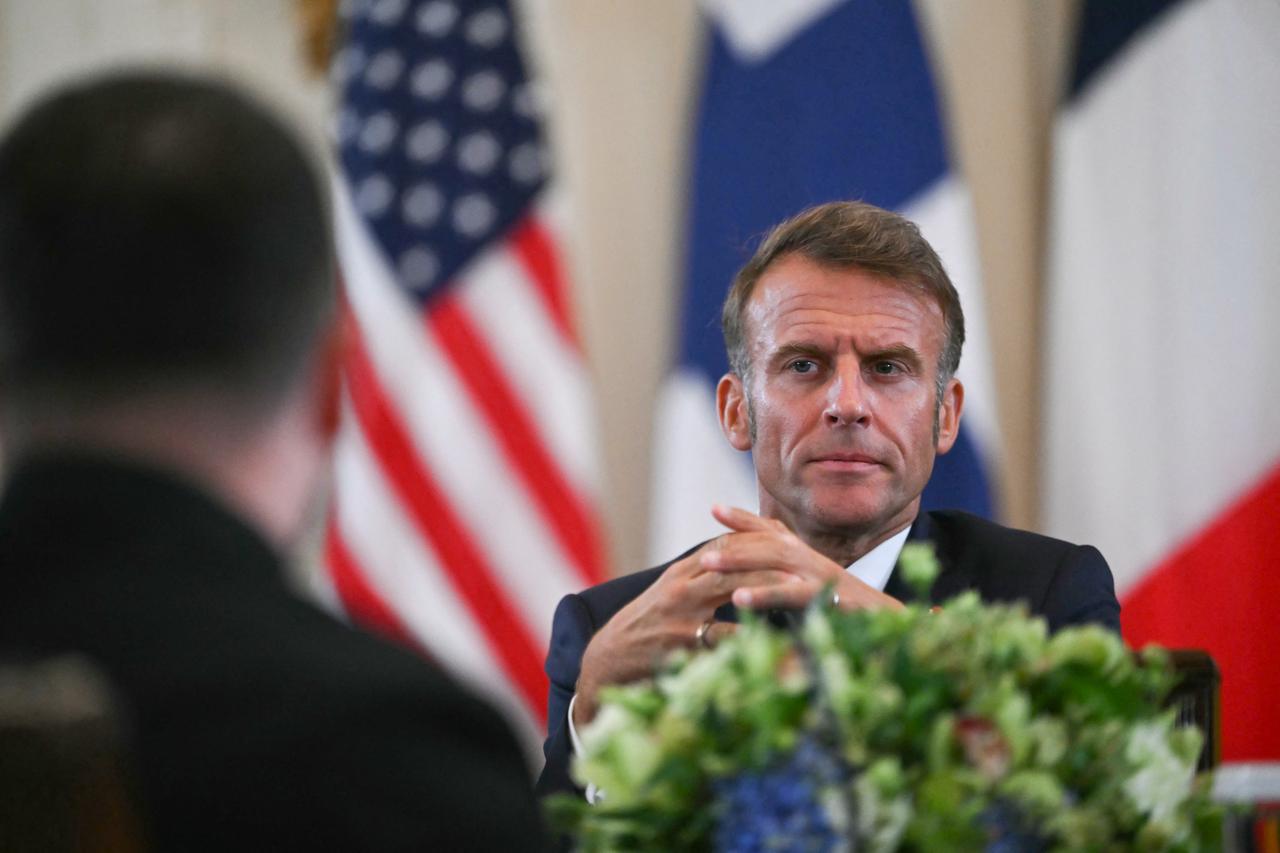
French President Emmanuel Macron said Tuesday he supports holding an expanded peace summit that would include European nations and Türkiye following a potential trilateral meeting between Russian President Vladimir Putin, Ukrainian President Volodymyr Zelenskyy and U.S. President Donald Trump.
"I want a meeting to follow all of this that includes Europeans and even the Turks. More precisely, I desire a meeting that includes everyone whose security is directly affected by the consequences of this conflict," Macron told reporters after a White House meeting hosted by Trump with Zelenskyy and European Union leaders.
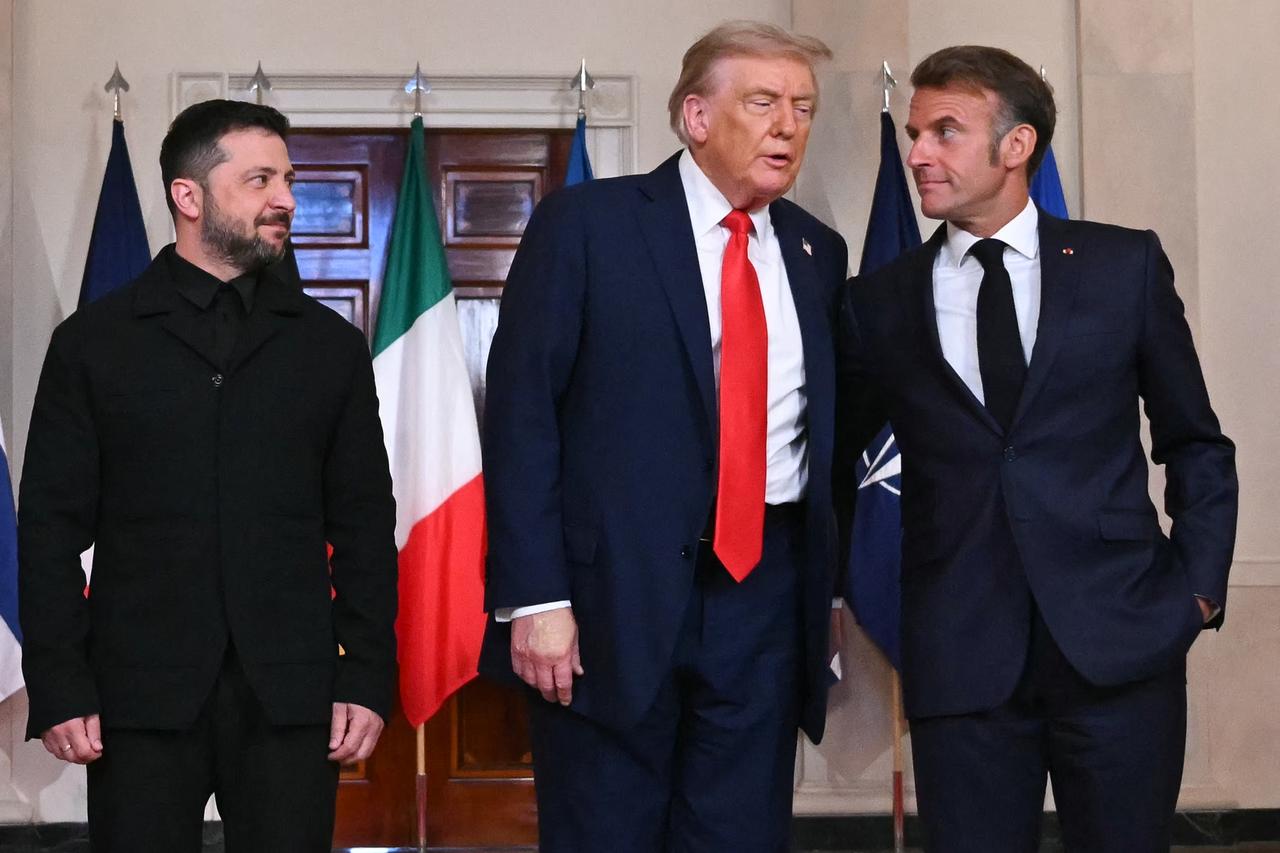
The French president outlined a multi-stage diplomatic process agreed upon in Washington, emphasizing the importance of achieving a ceasefire or pause in hostilities to enable continued negotiations.
Macron revealed that Trump and Putin spoke by phone during the White House meeting. "First, it was agreed to establish a series of bilateral meetings between President Zelenskyy and President Putin at a location to be determined in the coming hours," Macron said.
A trilateral summit including Trump would follow the initial Putin-Zelenskyy talks, according to Macron, who then advocated for a fourth round of discussions involving European nations and Türkiye.
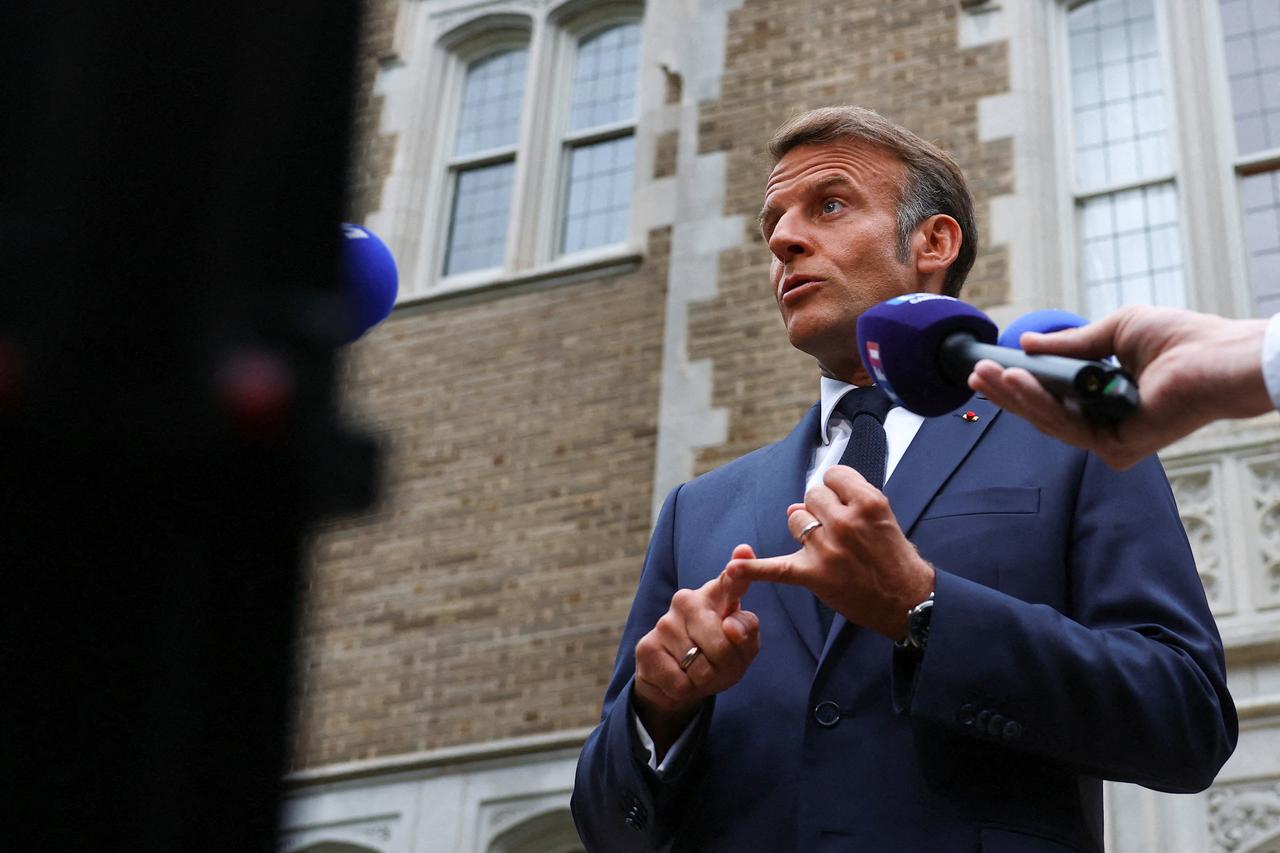
Speaking to French broadcaster TF1, Macron stressed that Ukraine's primary security guarantee comes from maintaining a strong military.
The second guarantee, he said, would involve peacekeeping forces that would conduct "security operations on air, sea and land, not provocative operations on the front line," serving lasting peace in Ukraine.
The Washington meeting included NATO Secretary General Mark Rutte, European Commission President Ursula von der Leyen, British Prime Minister Keir Starmer, Finnish President Alexander Stubb, Italian Prime Minister Giorgia Meloni and German Chancellor Friedrich Merz.
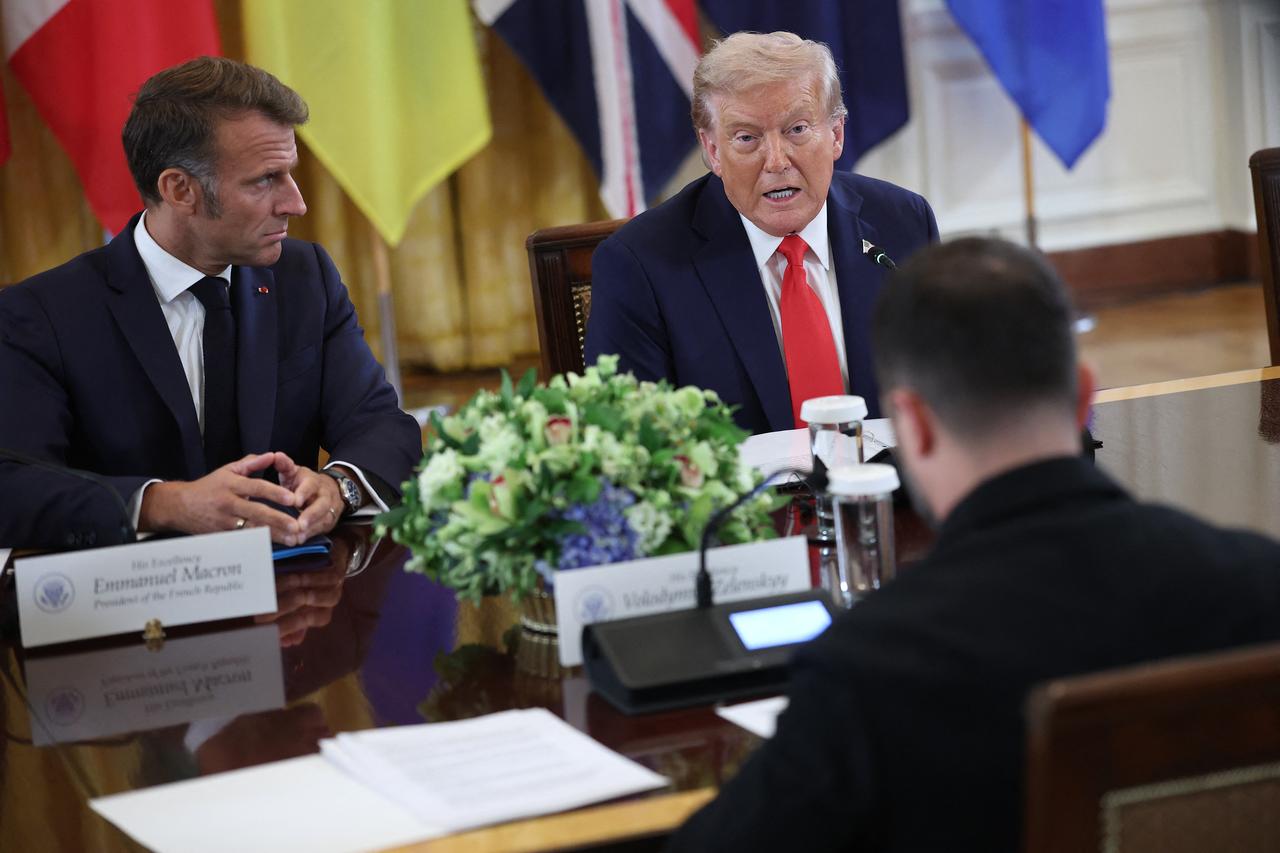
Ukrainian Foreign Minister Andrii Sybiha called the proposed meetings between leaders from the U.S., Ukraine and Russia a potential "turning point on the path to peace."
"Hard work is being done to advance peace," Sybiha posted on X, arguing that Russia's attacks demonstrate "the necessity of achieving lasting peace and securing security guarantees."
"In this sense, meetings between leaders from Ukraine, the U.S. and Russia could be a turning point on the path to peace," Sybiha stated.
The diplomatic activity follows Trump's Aug. 15 meeting with Putin in Alaska, after which Trump announced no final agreement had been reached.
Turkish Vice President Cevdet Yilmaz, representing President Recep Tayyip Erdogan, participated in an online "Volunteers Coalition Leaders Meeting" on Ukraine on Tuesday, following similar meetings on Aug. 13 and 17.
"During the online meeting, briefings and evaluations were made about the contacts between Mr. Trump and Mr. Zelenskyy, the President of Ukraine, some European leaders, EU and NATO representatives in Washington, following the meeting held by the U.S. and Russian presidents in Alaska," Yilmaz stated.
"If the parties meet directly in the upcoming period, diplomatic efforts will gain a new dimension. As Türkiye, we will continue to support diplomatic efforts for a just and lasting peace with all our strength," Yilmaz posted on social media.
Turkish Foreign Minister Hakan Fidan also held separate phone calls with British Foreign Secretary David Lammy and German Foreign Minister Johann Wadephul to discuss the results of the Alaska and Washington meetings, as well as developments in Gaza ceasefire negotiations.
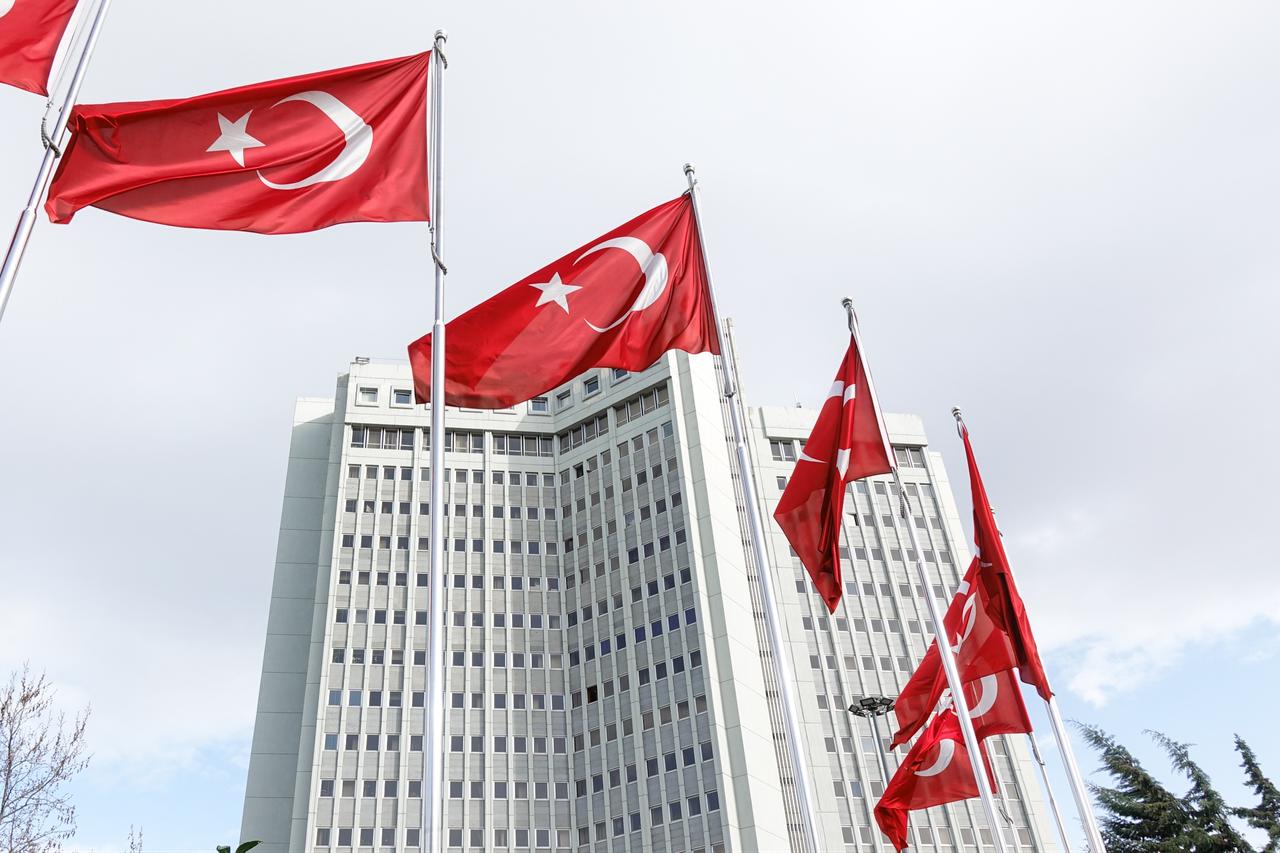
Russian Foreign Minister Sergey Lavrov characterized the Alaska summit as productive, telling state channel Rossiya-24 that it occurred in "a good atmosphere."
"There was a good atmosphere. This was also reflected in the statements made by Putin and Trump after the meetings. Frankly, it was a useful meeting," Lavrov said.
"U.S. President Donald Trump and his team, especially after the Alaska meeting, have adopted a much deeper approach to resolving this crisis," Lavrov stated, noting that Trump and his team sincerely want to achieve a long-term, sustainable and reliable outcome in Ukraine.
The U.S. increasingly understands the need to eliminate the underlying causes of the Ukraine crisis, Lavrov emphasized, noting that Putin has made numerous statements about these causes.
Lavrov emphasized Russia does not reject any negotiation format, whether trilateral or bilateral.
Referring to regions like Crimea and Donbas in Ukraine, Lavrov stated that Russia never aimed to seize territories. "Our aim was to protect the Russian people, the people who have lived on these lands for centuries, who shed blood for these lands in both Crimea and Donbas, who built cities, ports, factories, facilities and factories like Odessa, Nikolayev and others," he said.
The Russian foreign minister criticized Zelenskyy's statements that he would not bring territorial issues to the table because the constitution does not allow it, noting that bans on the Russian language have been legislated.
Lavrov pointed out that according to the Ukrainian Constitution, the rights of Russians and other minorities must be protected, adding, "If he really cares about his constitution, then he should start with its first articles where this obligation is stated."